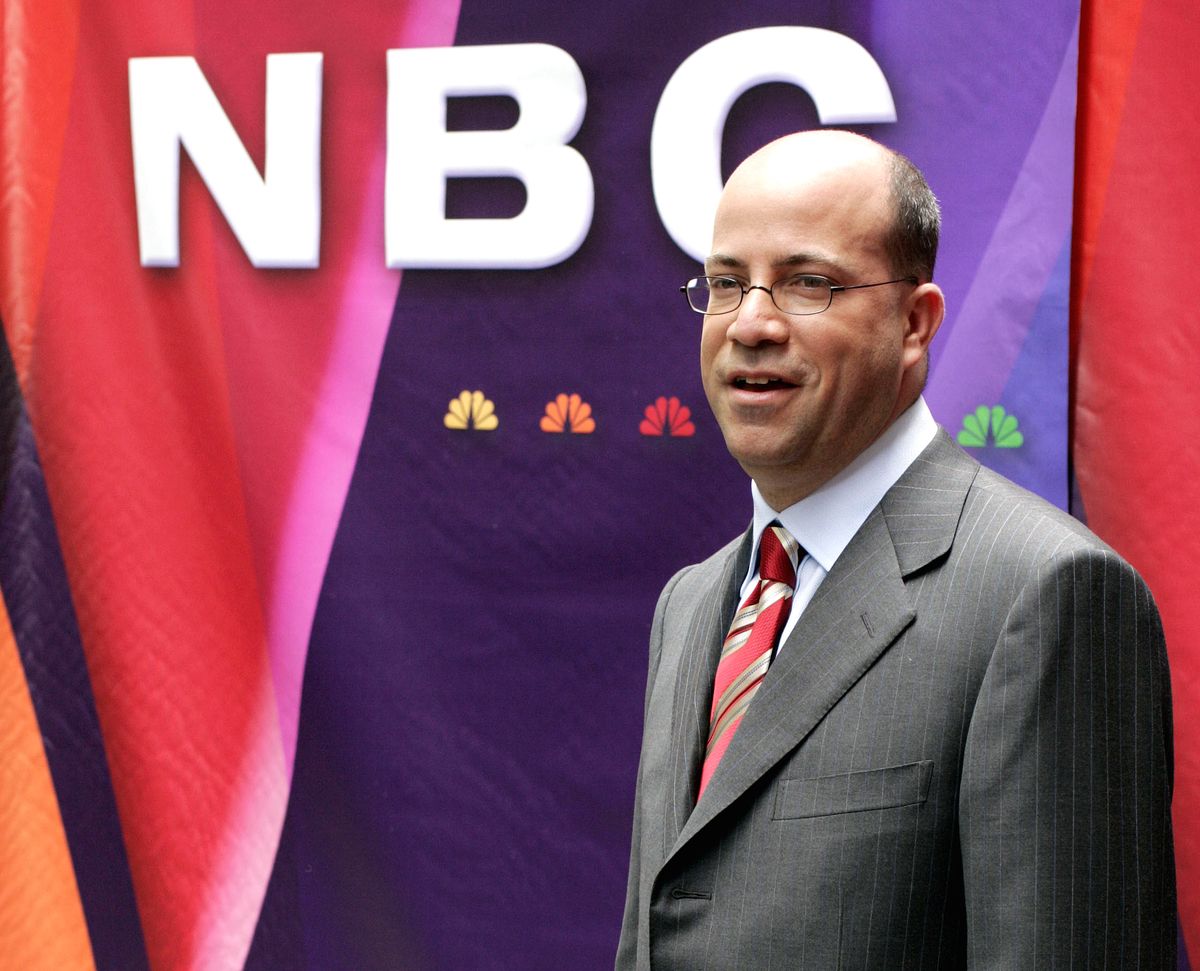One-time NBC whiz kid is behind the Leno flip-flop

LOS ANGELES – Jeff Zucker was a fearless news producer and fast-rising entertainment executive who was just 41 when he became head of NBC Universal. But in the last few years, the one-time whiz kid behind the “Today” show – he turned Katie Couric into a star – has made several costly miscalculations that have led to a spectacular fall by the country’s premier television network.
Zucker’s troubles were magnified last week when, with NBC facing a revolt by affiliate stations furious over their sinking ratings, he decided to move Jay Leno back to late night after less than four months. The unusual measure was an acknowledgment that Zucker’s gambit to shift the comedian into prime time had failed. On Tuesday, the situation got even messier when current “Tonight Show” host Conan O’Brien said he would resist the effort to push that show back a half hour to 12:05 a.m.
NBC’s Leno flip-flop, which is shaping up to be one of the biggest debacles in television history, underscores how Zucker, who views himself as a maverick and a champion of change, now faces a decidedly different legacy. Instead of the mogul with moxie who transformed television – he called for “a re-engineering of our businesses from top to bottom” – Zucker might better be remembered as the guy who plucked the peacock.
How Zucker found himself in such a fix is a study in how a chief executive, confronting wrenching changes to his business, reacts to challenges.
Some veteran TV executives believe the Leno imbroglio could ultimately cost more than $200 million, including the damage inflicted on stations’ local newscasts, their ad rates and NBC programs, such as “Law & Order: Special Victims Unit,” which lost millions of viewers when its time period was changed. They predicted that it could take years for NBC to rebuild.
“Everything about this decision seems to have been a disaster,” said Jeffrey Cole, director of the Center for the Digital Future at the USC Annenberg School for Communication. “It looks like NBC shot itself in the foot, the arm, the neck – and everywhere else.”
Zucker declined to be interviewed.
A senior NBC executive defended Zucker, saying, “I think Jeff’s legacy will be that of an innovator who was not afraid to take risks. Not all big swings will work, but many will. For those that don’t work, you have to be smart enough to know when to make a change, and that is what he has done.”
For much of his career, the 44-year-old Harvard graduate has been the master of the quick fix. Not enough hit shows on the profitable Thursday night? Supersize the sitcoms “Friends” and “Will and Grace” to 45 minutes. Don’t want to lose Jay Leno to a rival network? Give the late-night comedian his own show at 10 p.m. That way, NBC could keep both Leno and O’Brien in the fold.
But while Zucker’s facile management technique was suited for running a news operation, it’s had different consequences on the entertainment side of the network, which Zucker took over a decade ago.
The implosion of NBC’s prime time – and potential damage to a TV institution, “The Tonight Show” – can be traced to three major decisions: In 2004, assuming that the wry host Conan O’Brien was the future and Leno would be ready for retirement, Zucker agreed to give O’Brien “The Tonight Show” in 2009. At the time, it was a major coup for Zucker, the network’s programming chief who was angling to be the next CEO.
But as 2009 approached, Leno continued to triumph in the ratings and was showing no signs of slowing down. He groused on his show about his upcoming retirement.
Another blunder was when Zucker abruptly fired programming chief Kevin Reilly to hire the brash but inexperienced TV producer Ben Silverman to run NBC. The network quickly discovered that Silverman wasn’t cut out to be an executive, but instead of easing him out, Zucker staunchly defended him for two years. Silverman created management turmoil and a string of duds that cost the network hundreds of millions of dollars.
Finally, in December 2008, Zucker, fearful of losing a disgruntled Leno to rival ABC, wooed him into prime time, clearing the “Tonight Show” perch for O’Brien. People close to Zucker said the decision was prompted by Zucker’s desire to keep Leno at NBC and keep his 2004 promise to O’Brien.
Associates said Zucker boxed the network into an untenable position because of his tendency to focus on short-term gains and concern for perception. In his eagerness to keep Leno and O’Brien from defecting to rival networks, he failed to anticipate the collateral damage a low-rated 10 p.m. show would inflict on the newscasts of NBC affiliates.
“I think Jeff is a brilliant marketer and a brilliant tactician and a terrible strategist,” said a former NBC executive.